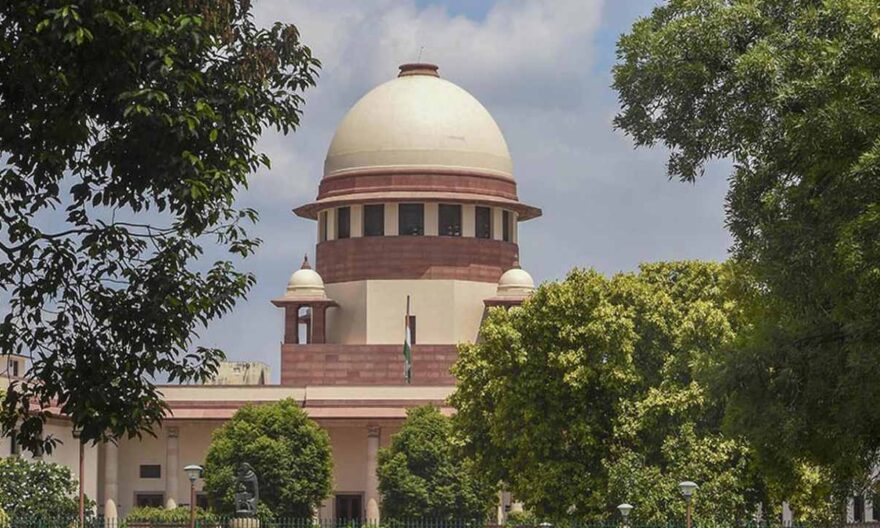
A five-judge Constitution Bench of Supreme Court of India headed by Chief Justice of India D Y Chandrachud, clarified that any “judicial review” of the Central government’s actions would be limited to examining constitutional violations and should not concern the wisdom of the decision.
The Supreme Court stated on Thursday that the contention that Article 370 attained permanence upon the dissolution of the constituent assembly for Jammu and Kashmir in 1957 is contradicted by the practice of issuing Constitution (Application) Orders periodically, which altered the Constitution concerning the former state.
During the hearing of petitions challenging alterations made to Article 370, the CJI responded to senior advocate Dushayant Dave’s argument for the petitioners. Dave explained that the Constitutional orders were intended to extend multiple amendments under Article 370(1), as certain provisions of the Constitution and laws might not have been applicable otherwise.
The Chief Justice referred to Article 370(1), specifically proviso (d), which stipulates that matters related to the Instrument of Accession only necessitate consultation with the state government, while other provisions require concurrence. He also highlighted Article 370(2), which states that if concurrence is granted prior to the constituent assembly’s opinion, it must be presented to the assembly for its opinion and concurrence.
The CJI challenged the notion that Article 370’s purpose was fulfilled after the constituent assembly concluded its tasks. He pointed out that Constitutional orders were issued even after 1957, refuting the argument that Article 370 had completed its function and assuming a sense of permanence in the Indian Constitution.
Dave contended that this applied only to decisions made prior to the assembly’s establishment, for which limited approval was sought.
However, the CJI raised concerns about the authority to amend the Constitution. He questioned whether, according to Dave’s argument, any amendment would be impermissible once the constituent assembly completed its duties in 1957.
Dave argued that Article 370(3) pertains solely to the continuation of Article 370 or not. Once the constituent assembly consents to its continuation, it takes on an aspect of permanence.
The CJI identified an inconsistency in Dave’s submission, suggesting that if it were true, the consequence would be a lack of authority to amend the Constitution under Article 370(2) after the constituent assembly’s work in 1957, which contradicts both Constitutional practice and the acknowledgment by Jammu and Kashmir and the Government of India.
Dave emphasized that concurrence was confined to actions taken before the assembly convened. The CJI questioned whether the power of the state government to give concurrence under the second proviso to clause (d) would continue once the assembly’s work was done in 1957.
Dave responded that all provisions of the Constitution had been applied by 1954, leaving nothing further to be done. Article 370 remained fully operational.
The CJI noted that there should be logical consistency in interpreting the various clauses of Article 370. It should be either an all-encompassing preservation or collective termination.




